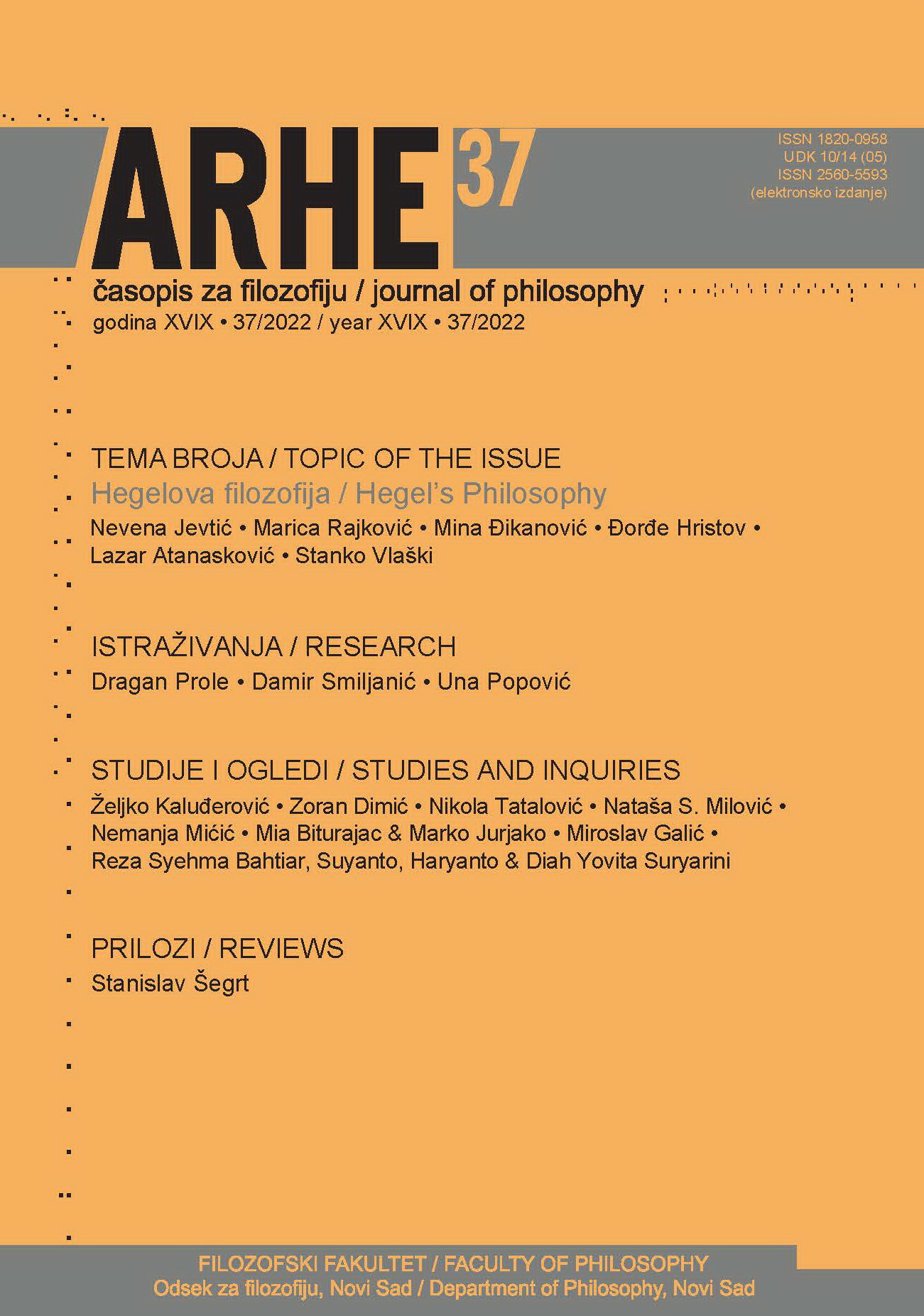Tri rata u Hegelovoj filozofiji
Three Wars in Hegel’s Philosophy
Author(s): Đorđe HristovSubject(s): Political Philosophy, Social Philosophy, 19th Century Philosophy, German Idealism, Philosophy of Law, Philosophy of History
Published by: Филозофски факултет, Универзитет у Новом Саду
Keywords: war; courage; social contract; colonial war; limited war; total war; Hegel;
Summary/Abstract: In the article, I show that Hegel’s understanding of war as a condition of state sovereignty contains several contradictions that make modern wars unviable for the sustainment of political unity. In the first place, I offer an explanation of Hegel’s conception of war as a necessity of politics, with attention to his concept of “courage”, which figures for Hegel as an alternative to the social contract theory. In the next step, I argue that this conception of courage cannot fulfil all of the requirements in Hegel’s political philosophy that would offer a guarantee of state sovereignty. I do this through a typology of wars contained in Hegel’s work — colonial, limited, and total war — demonstrating that none of these wars are capable of securing political unity in modernity. Finally, I conclude that modern wars have a sense only within Hegel’s world-history, but not in his political philosophy.
Journal: Arhe
- Issue Year: 2022
- Issue No: 37
- Page Range: 71-88
- Page Count: 18
- Language: Serbian

